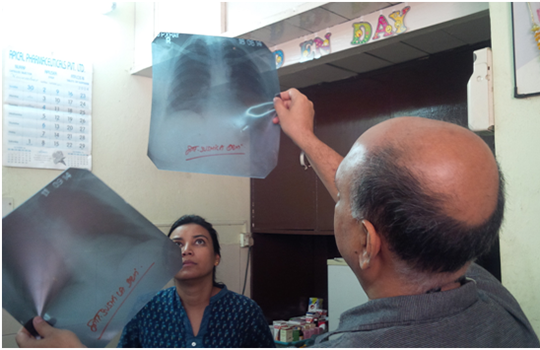August marked the fourth anniversary of the shootings at the Marikana mine in North West Province of South Africa. It’s one of those events that so etches itself onto our collective soul that you remember exactly where you were when you learnt about it. I was in an upmarket coffee shop—I live in one South […]
Category: Global health
Jeph Mathias: The human face of inequality
Long ago an MSF (Doctors Without Borders) poster transfixed one junior doctor. Me. It was black and white. Two figures, photographed from behind, dominate the foreground: a poor black child, desperately malnourished and in need (yet another African war?), being led by a white man (a doctor maybe?) to a makeshift clinic that is but […]
Canada’s new government: Climate change, “regulatory capture,” and “cathedral thinking”
It’s a year this month since Justin Trudeau was elected as Canada’s 23rd Prime Minister, ending a decade of conservative rule under Stephen Harper. By most accounts he has set a progressive and inclusive agenda at home, while internationally he has eschewed populist sentiments (seen in many countries)—welcoming instead 25 000 Syrian refugees, re-engaging with […]
Claudia Stein: Europe is embracing the burden of disease approach
As readers of The BMJ, there’s a good chance you are familiar with the burden of disease (BoD) approach. BoD is a systematic scientific effort to quantify the comparative magnitude of health loss due to disease, injury, and risk factors by age, sex, and geography for specific points in time. It combines measures of morbidity […]
Christopher Stokes: One year after Kunduz
Battlefields without doctors, in wars without limits Médecins Sans Frontières (MSF) is remembering one of the darkest moments in its history. On 3 October 2015, US airstrikes killed 42 people and destroyed the MSF trauma hospital in Kunduz, Afghanistan. As we grieve the loss of our colleagues and patients, we are left with the question: […]
Madhukar Pai and Nimalan Arinaminpathy: How can India overcome tuberculosis?

India reports more cases of tuberculosis than any other country. This much is well known. However, nobody quite knows the true magnitude of the TB problem in the country. For one, we do not know the number of TB patients who do not seek care or who remain undiagnosed, but we refer to this often […]
Vageesh Jain: Donald Trump—a disaster for global health
As the US presidential election inches closer, Donald Trump appears to be tapping into the American zeitgeist. But what would a Trump presidency mean for the world? Some say nothing will change in the permanently gridlocked US political system. Others fear nuclear war, the re-emergence of the Ku Klux Klan, and shorter maternity leave. And […]
Private gain, public pain: does a booming private healthcare industry in Nepal benefit its people?
Public dissatisfaction with the health sector in Nepal has grown in recent years. A prominent figure in health activism, Govinda KC, has staged several hunger strikes to pressure the government to undertake necessary reforms in the medical education sector. He recently called for an end to the haphazard granting of affiliation to many new medical […]
Richard Smith: The challenge of high need, high cost patients

A challenge to all health systems is how best to manage “high need, high cost patients,” a term developed by the Commonwealth Fund. Its president, David Blumenthal, discussed the best response in last week’s annual health lecture of Imperial College’s Institute of Global Health Innovation. The first reason for caring about such patients is that […]
Mathias Bonk: Who will become WHO’s new director general?
The nomination deadline for the next director general of the WHO has passed and six of WHO’s Member States have sent in nomination papers for their respective candidates. Three of these candidates, Tedros Ghebreyesus, the Ethiopian Minister of Foreign Affairs, Sania Nishtar, former Minister for Science and Technology of Pakistan, and Phillipe Douste-Blazy, Chairman of […]